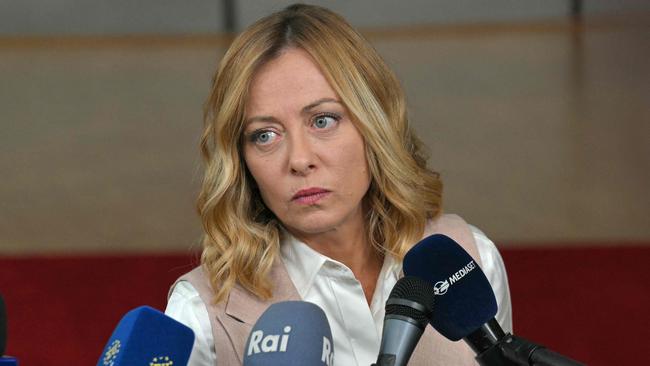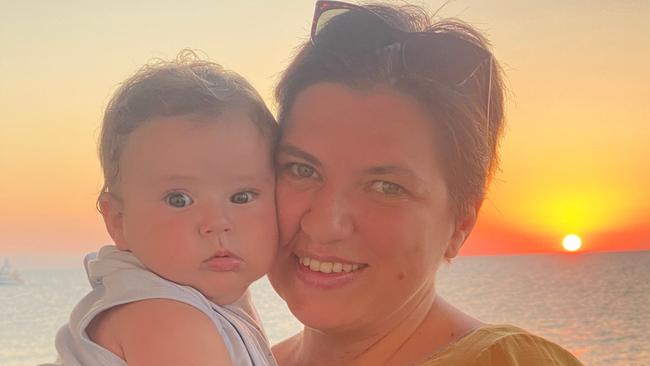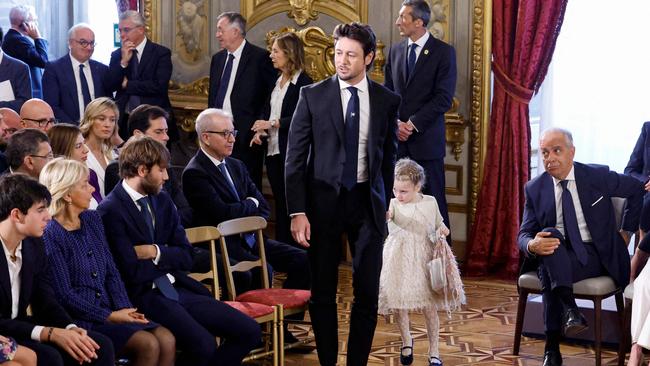Single women eye victory in challenge to Italy’s ‘no husband, no baby’ policy on IVF
Critics of the Italian PM, who had a daughter out of wedlock, say her defence of traditional family values is just an excuse to punish alternative lifestyles.

Four years ago, Valentina Curatolo, a childless single woman living in Milan, decided she wanted to have a baby through IVF. The snag was Italian law permitted only women in heterosexual relationships to do so.
So the human resources worker, 40 at the time, found a clinic in Madrid and arranged for 16 eggs she had had extracted and stored six years earlier to be flown over at a cost of almost $5,000. Curatolo estimates that the entire process - flights to Spain and hotels included - set her back $16,500. It would have cost her just $825 in Italy today.
“The thing that makes me angry is that only less well-off people are affected by this limitation,” said Curatolo, 44, at a bar in Milan, accompanied by Edoardo, her two-year-old son, whom she conceived through IVF. “Anyone with money can get around the problem - they take a flight and go elsewhere.”

Curatolo is one of more than a dozen female campaigners determined to overturn the ban. With Italy’s constitutional court due to rule on the matter next year, they believe they may be on the cusp of a historic victory.
The case coincides with attempts by Giorgia Meloni’s government to reverse Italy’s chronic population decline. Births slid to a low of just 379,890 last year, a 3.4 per cent drop. While the government has spent $26 billion in benefits on families with children this year the measures appear to have had little impact. There were 4,600 fewer births in the first seven months compared with the previous year.
Meanwhile, Meloni, an erstwhile champion of the “traditional family”, has been rolling back reproductive rights. After ordering city councils to ban both members of same-sex couples from registering themselves as a child’s legitimate parents, parliament last month voted to ban women from travelling abroad to have children through surrogacy.
“A common sense norm against the commodification of women’s bodies and children,” Meloni wrote on X after the result. “Human life is priceless and not a bargaining chip.”
For the government’s critics, the surrogacy ban raises the question of whether Meloni cares more about promoting family orthodoxy or facilitating child births. They note that the prime minister, raised by a single mother, had her teenage daughter, Ginevra, out of wedlock and recently split from the child’s father. “It’s one rule for them and another for us,” Curatolo said.

That may be about to change. Italy’s constitutional court has already declared previous articles from the overarching law on assisted reproductive technology (ART) unconstitutional, opening the way to treatment for couples with transmissible genetic diseases and donor fertilisation, whereby sperm, eggs or both are donated by somebody outside a heterosexual couple. Now a legal challenge has thrown the future of the ART law into question.
Evita, a 40-year-old woman from Turin, whose surname has not been made public, challenged the fact that a Tuscan reproductive clinic had denied her IVF treatment because she was single.
In September, a Florence court agreed that the restrictions may violate Italy’s constitution and the European Convention on Human Rights.
Filomena Gallo, who heads the legal team at the Luca Coscioni Association for the freedom of scientific research, which is supporting Evita, expects the constitutional court to hear the case in the spring. “As soon as the court declares a prohibition to be unconstitutional, it is cancelled,” Gallo said.
Curatolo said she hoped a change to the law would be just one step on a longer journey of winning reproductive rights.
“I have my child now,” she said. “I want to leave him a better country in which he does not face similar hurdles to me.”
The Times




